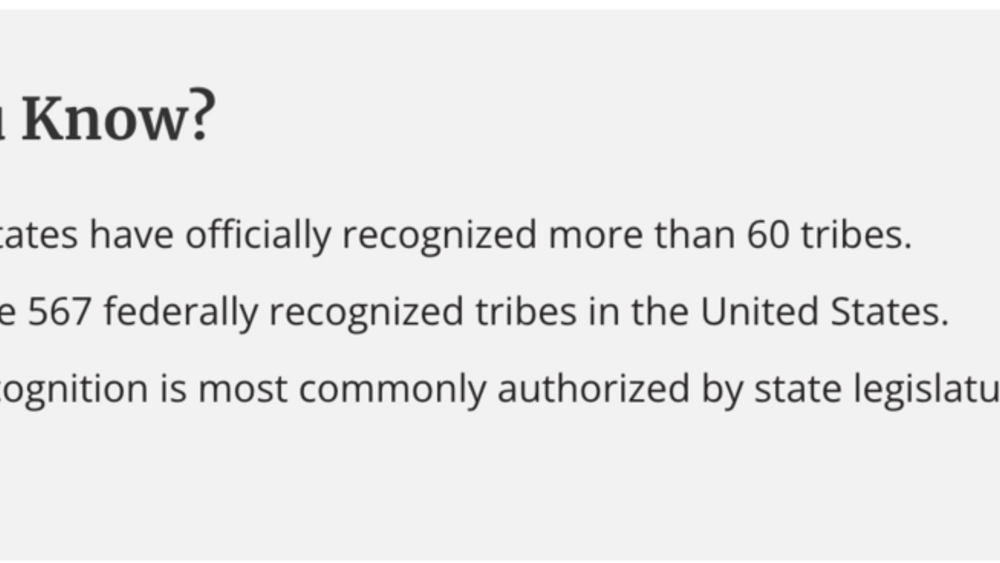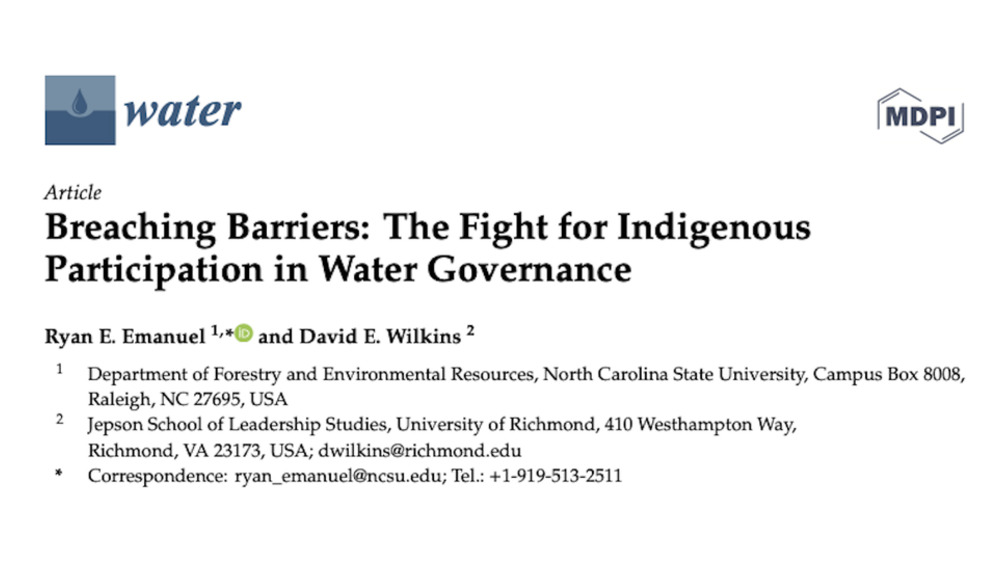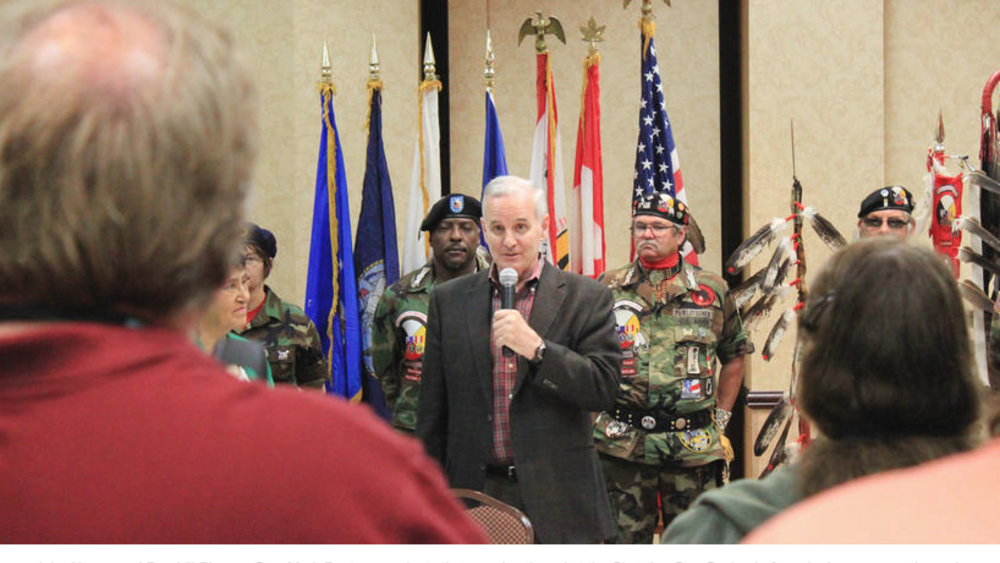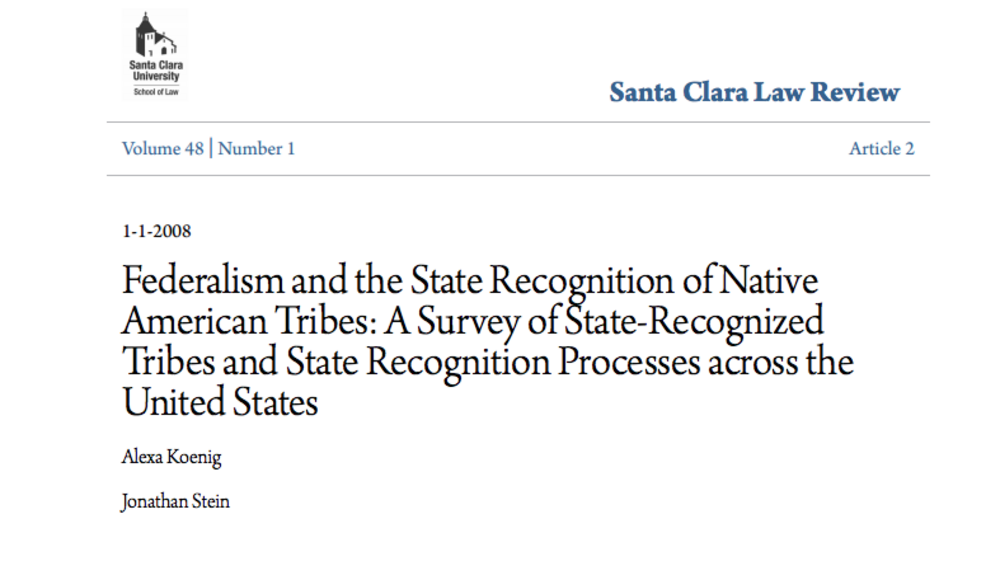Indigenous Governance Database
state recognition

The Rise of Indigenous Recognition: Implications for Comparative Politics
Recent decades have ushered in a new era for the recognition of Indigenous rights. Today, more than half of all United Nations member states recognize some form of Indigenous governance in their constitutions (Holzinger et al 2019), and dozens more have done so statutorily. This marks the…

State Recognition of American Indian Tribes
State-tribal relations have a long and complex history in the United States. States’ government- to-government relationships with tribes continue to evolve, taking many forms, including formal recognition. Usually accomplished through legislative action, state recognition of American Indian tribes…

Breaching Barriers: The Fight for Indigenous Participation in Water Governance
Indigenous peoples worldwide face barriers to participation in water governance, which includes planning and permitting of infrastructure that may affect water in their territories. In the United States, the extent to which Indigenous voices are heard—let alone incorporated into decision-making—…

Dayton signs tribal consultation executive order
With the White Earth Nation flag and tribal and state representatives standing behind him, Gov. Mark Dayton signed an executive order Thursday directing state agencies to develop policies to guide them when working with tribal nations...

Federalism and the State Recognition of Native American Tribes: A Survey of State-Recognized Tribes and State Recognition Processes Across the United States
In the last few years, states and tribes have increasingly realized that state recognition can serve as an important, albeit limited, alternative to federal recognition. This realization is evidenced by the many states that have recently codified their state recognition processes or are planning to…
